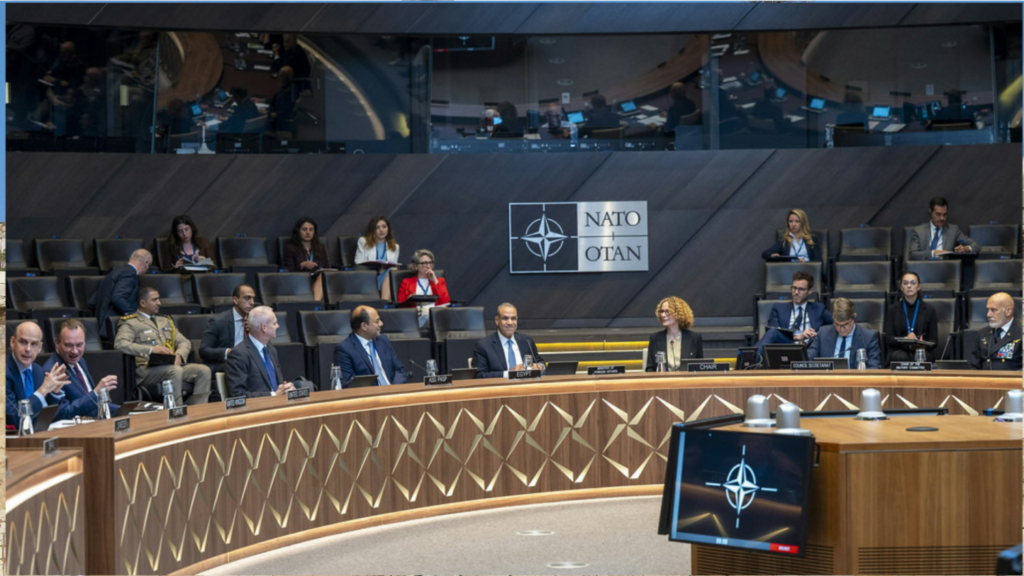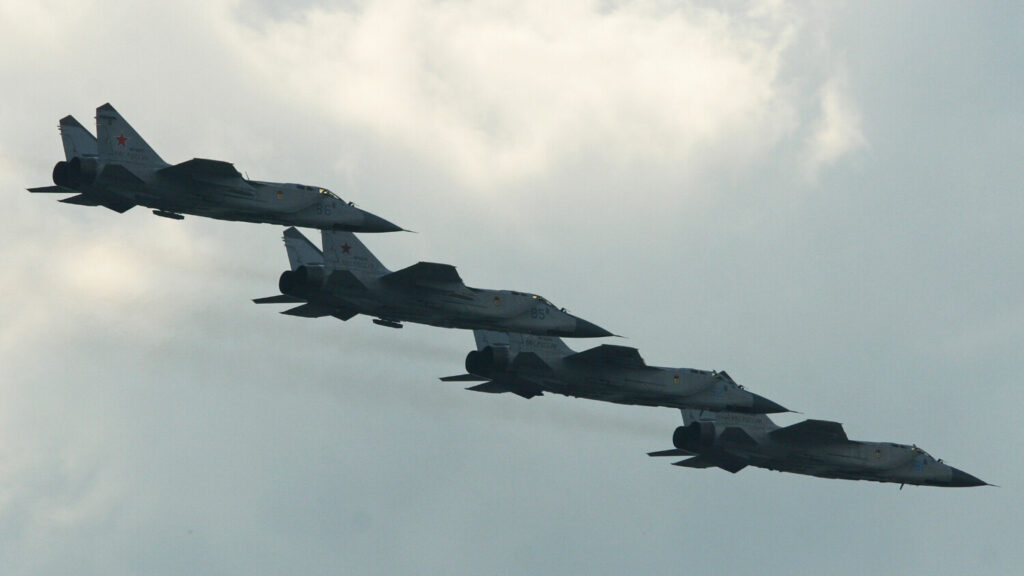The U.S. Is Considering Return to Nuclear Testing: New Challenges to Global Peace and Security
The Trump administration’s announcement of the potential return to explosive nuclear testing has bewildered the international community, an action Washington has not undertaken since 1992. This decision would mark a huge step backwards, signalling a return to previous tensions which challenge global peace and security. North Korea stands alone as the only nuclear-armed state to have conducted tests since 1998. The U.S. return to testing will have far-reaching irreversible implications, jeopardizing the nuclear non-proliferation regime and incentivising other nuclear-weapon states to follow suit. Another irrepressible arms race is not inconceivable and would mark a pinnacle moment in a bleak future for the international community.
Reasons Behind Resuming Nuclear Tests
The issue stemmed from a meeting with national security agencies on 15 May and provoked clashes between the U.S. officials. The decision to resume underground testing reflects Washington’s political strategy rather than technical interests. As such, the strategic nuclear arms control framework may operate as a bargaining chip on the international stage. Since time is running out for deciding the future of the New Strategic Arms Control Treaty, and China is resisting the U.S–Russia disarmament framework, the Trump administration is presumably using this leverage to negotiate with China on the trilateral arms control treaty. The US’s consideration of resuming testing also reflects the alleged low-yield nuclear tests undertaken by Russia and China. These tests violate the Comprehensive Nuclear-Test-Ban Treaty (CTBT) in 1996, which bans all nuclear experiments producing an explosive yield. These allegations were outlined in the U.S. State Department’s annual report, which assessed countries’ compliance with arms control agreements.
The CTBT is at Stake
According to the National Nuclear Security Administration, the “readiness” to conduct a test within six to ten months following the US return to nuclear testing, will violate the international norm and undermine the Comprehensive Nuclear-Test-Ban Treaty (CTBT). Before 1996 five countries have carried out more than 2,000 nuclear tests, of which more than 1,000 were conducted by the United States between 1945 and 1992. And only 14 tests have been conducted since the CTBT was opened for signature in September 1996. As of today, the CTBT has 184 signatories but has not yet entered into force due to the failure of all the nuclear-capable states to sign and ratify the Treaty. In fact, the United States was one of the first to sign in 1996 but the U.S. Senate never ratified the treaty due to the uncertainties about monitoring the other states’ compliance with the treaty. Nevertheless, Washington has been committed to the moratorium on conducting nuclear tests and so far, has been the biggest financial contributor to the CTBT and its verification regime.
A breach on the moratorium is unlikely to add to the safety and reliability of the nuclear stockpile since its capability can be checked through nuclear tests modelling without producing a yield due to the Stockpile Stewardship Program. Yet the verification regime forged by the CTBT through its International Monitoring System is able to detect underground, underwater, and atmospheric nuclear explosions. Thus, it ensures monitoring of the states’ compliance with the treaty, which rules out any reasoning for not ratifying the treaty due to the other states’ non-compliance concerns. Despite Obama’s affirmations regarding the intention to pursue the treaty’s ratification, the Trump administration clearly stated in the 2018 Nuclear Posture Review that the U.S would not seek ratification of the CTBT. Nevertheless, the country has supported the activities of the Preparatory Commission for the Comprehensive Nuclear-Test-Ban Treaty Organization. The demise of the near-global moratorium on nuclear tests created by the CTBT in the aftermath of the U.S. decision to resume testing will have destabilizing consequences for the nuclear non-proliferation and disarmament regime.
Implications of Resuming Nuclear Tests
An attempt to seek political leverage to force China’s hand into arms talks is likely to undermine the overall disarmament regime by inciting the other nuclear-weapons states to resume testing. Considering that China has conducted 45 tests, compared to the 1,030 U.S. tests, Washington’s decision might spur the other nuclear-weapon states, including China itself, to test more sophisticated weapons designs. Other nuclear-armed states, such as India and Pakistan, which both conducted nuclear tests in 1998, could likewise resume activities using the U.S as justification. Equally, this decision would disrupt arms negotiations with North Korea, ruling out any possibility of the denuclearization of the Korean Peninsula. Shortly after the Trump administration announced the readiness to set off a nuclear test explosion, Pyongyang has discussed the policies on increasing its nuclear war deterrence. With the U.S. considering the return to nuclear tests, North Korea will no longer feel compelled to adhere to the tests moratorium.
Conclusion
The past years have demonstrated a number of insecurities and disarrays which have jeopardized the nuclear disarmament regime, such as the U.S. reverting the accord with Iran. The uncertainties around the New START future, the demise of the INF Treaty, the discussions about the U.S. pulling out of the nuclear test ban regime might be the last straw preventing a new nuclear arms race. The U.S. breach of the nuclear tests moratorium will erode another fundamental norm, which has endorsed the non-proliferation regime for decades. It is highly unlikely that resuming nuclear tests and slipping back into nuclear brinkmanship will result in political concessions. Instead, it is likely to backfire through inciting other nuclear-armed states to follow suit. The very consideration is hugely dangerous and warrants a large amount of attention by the international community to ensure the safety and peace of the world order.
References
Webb G. (June 2020), ‘Trump Officials Consider Nuclear Testing’. Arms Control Association. Available at: https://www.armscontrol.org/act/2020-06/news/trump-officials-consider-nuclear-testing [Accessed 26 June 2020]
Arms Control Association (2019), ‘Comprehensive Test Ban Treaty at a Glance’. Available at: https://www.armscontrol.org/factsheets/test-ban-treaty-at-a-glance [Accessed 23 June 2020]
Hudson J., Sonne P. (May 2020), ‘Trump administration discussed conducting first U.S. nuclear test in decades’. [Online] The Washington Post. Available at: https://www.washingtonpost.com/national-security/trump-administration-discussed-conducting-first-us-nuclear-test-in-decades/2020/05/22/a805c904-9c5b-11ea-b60c-3be060a4f8e1_story.html [Accessed 24 June 2020]
Borger J. (May 2020), ‘Nuclear watchdog says any US test would be ‘grave challenge to peace’. [Online] The Guardian. Available at: https://www.theguardian.com/world/2020/may/28/nuclear-watchdog-us-underground-test-challenge-to-peace [Accessed 20 June 2020]
Arms Control Association (June 2020), ‘Reaction to White House Nuclear Testing Proposal Strongly Negative’, Issue briefs. Available at: https://www.armscontrol.org/issue-briefs/2020-06/reaction-white-house-nuclear-testing-proposal-strongly-negative [Accessed 24 June 2020]
Klare T. Michael, Kimball G. Daryl (June 2020), ‘Keep nuclear testing off the table’. [Online] The Boston Globe. Available at: https://www.bostonglobe.com/2020/06/13/opinion/keep-nuclear-testing-off-table/ [Accessed 22 June 2020]
Comprehensive Nuclear Test-Ban-Treaty Organization, ‘Status of Signature and Ratification’. Available at: https://www.ctbto.org/the-treaty/status-of-signature-and-ratification/ [Accessed 29 June 2020]



